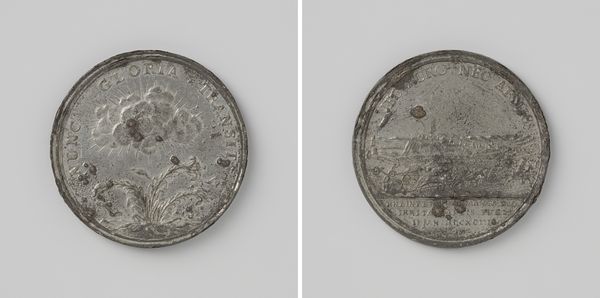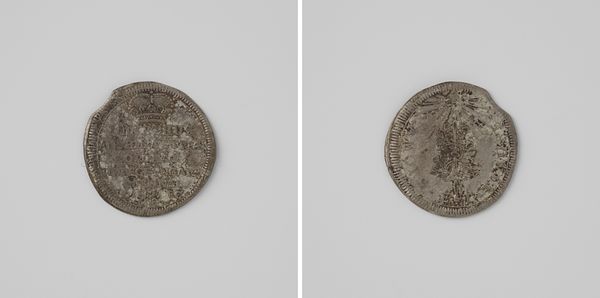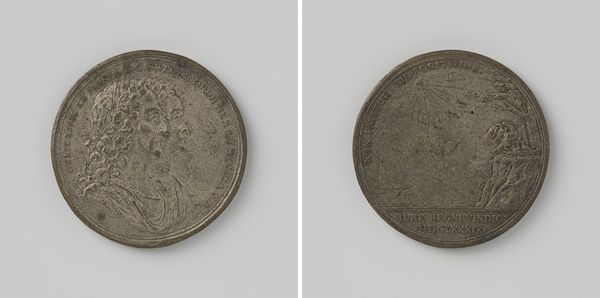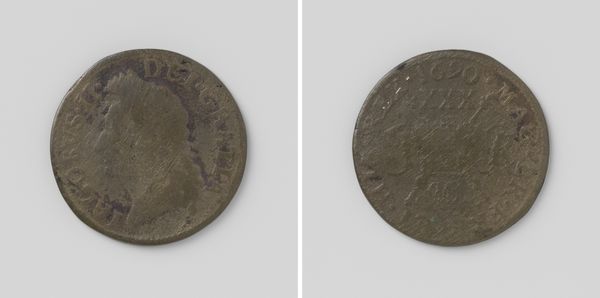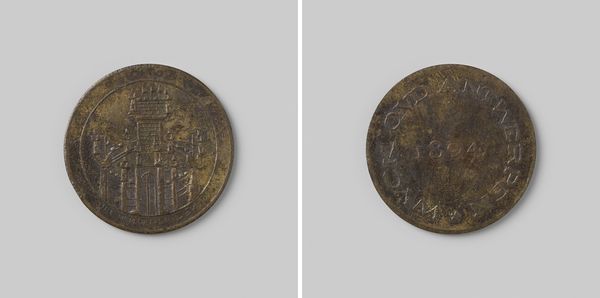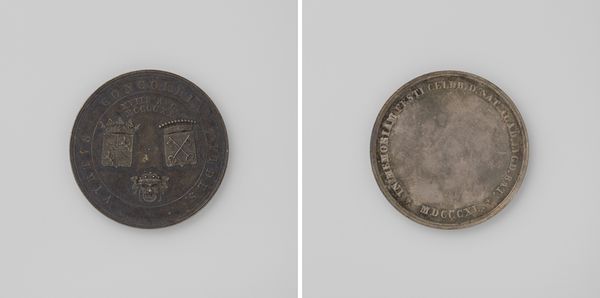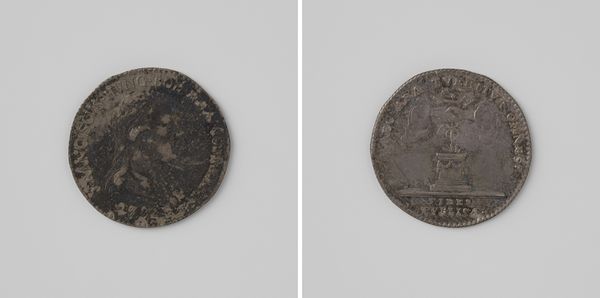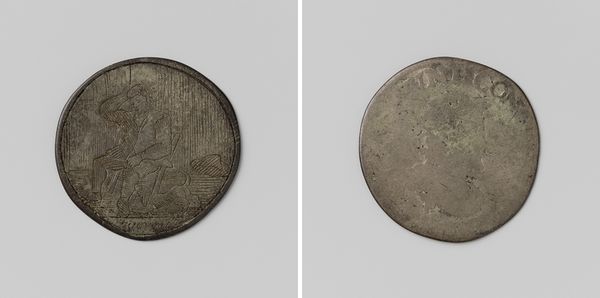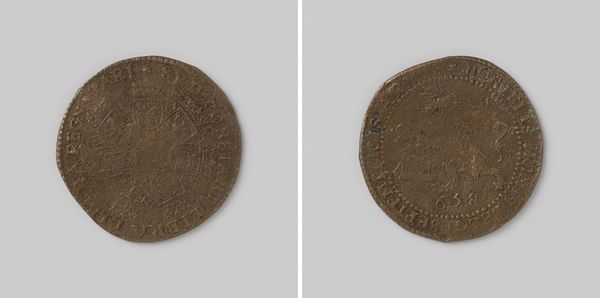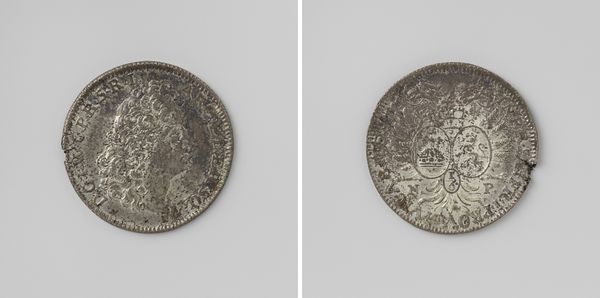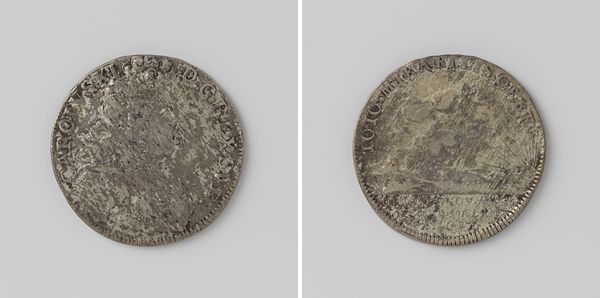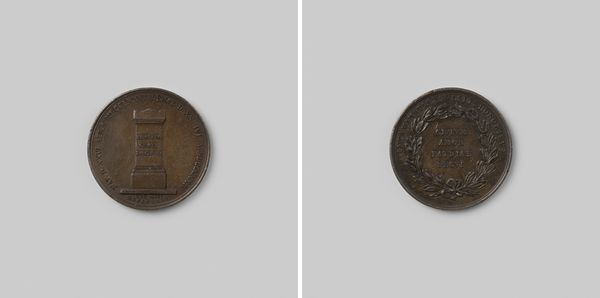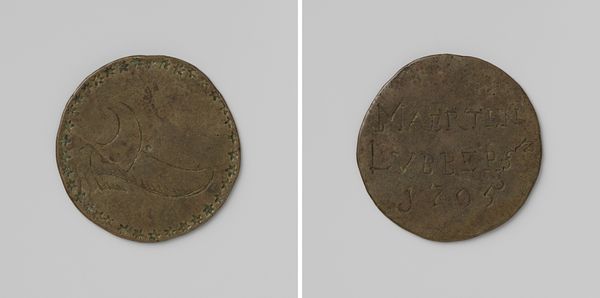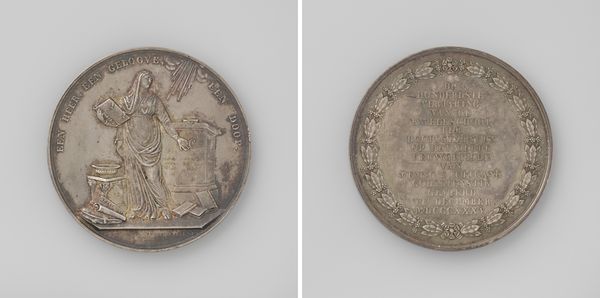
print, metal, engraving
#
portrait
# print
#
metal
#
figuration
#
history-painting
#
northern-renaissance
#
engraving
Dimensions: diameter 2.5 cm, weight 1.80 gr
Copyright: Rijks Museum: Open Domain
This small silver object, an anonymous Leicester-stoter, features an engraved image on one side. It’s a humble material, really, this coin. But it carries a lot of information about the time in which it was made. The engraving itself, though simple, required a steady hand and skill with metalworking tools. You can see an interior with a person sitting. The image seems to have been directly cut into the surface of the coin, a process that would have been laborious and irreversible. Think about the labor involved in cutting that design so small with such precision. The use of a coin as a canvas also tells us something. Coins were objects of everyday exchange, literally embodying economic activity. By engraving an image onto it, the artist transformed a common object into a personal or political statement, or perhaps simply elevated it to the status of art. It reminds us that even the smallest, most functional objects can be carriers of cultural meaning. The engraving transforms it from mere currency into something more—a testament to human creativity and the desire to make our mark on the world.
Comments
No comments
Be the first to comment and join the conversation on the ultimate creative platform.
